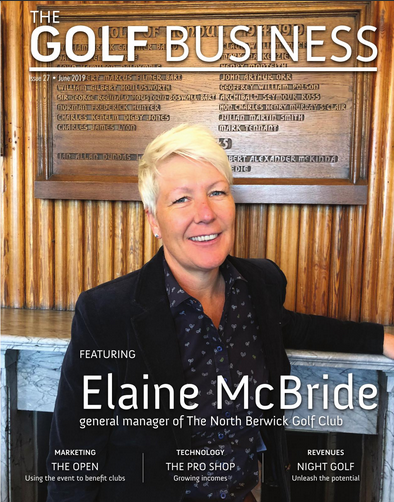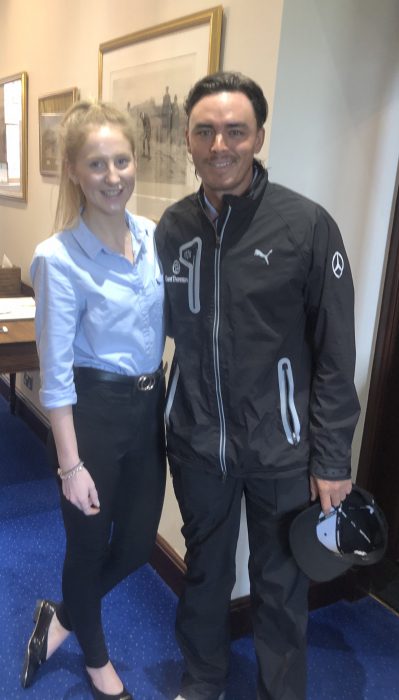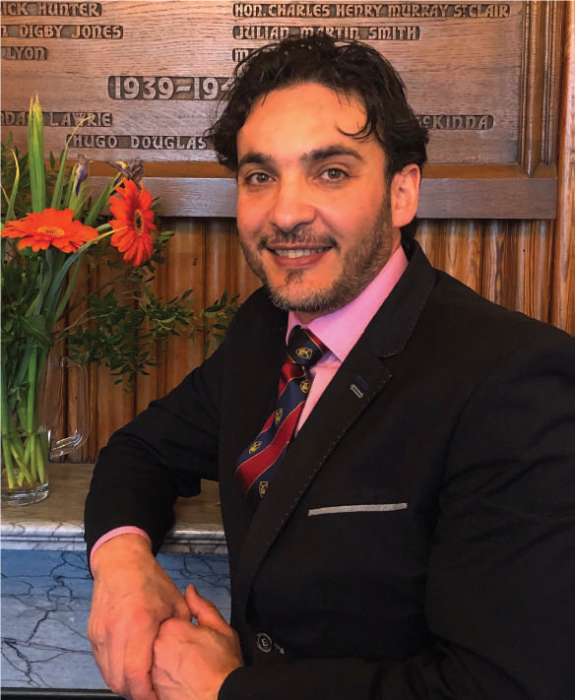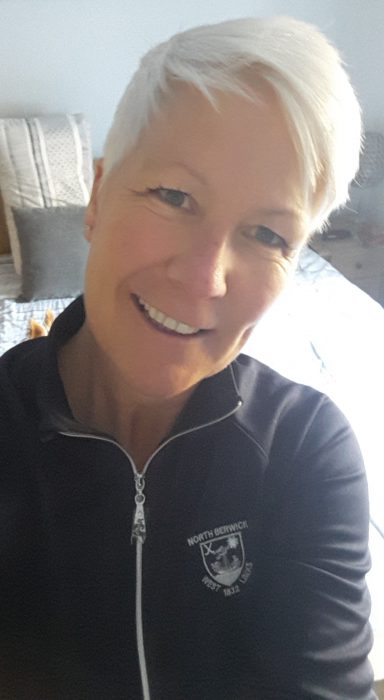Could NLP make our golf club deliver better results?
The cover of the June 2019 issue of The Golf Business featured the general manager of The North Berwick GC, Elaine McBride, who is an advocate of Neuro Linguistic Programming (NLP) when it comes to her approach to management. Here, she explains how the club’s staff were taught about NLP – and why this led to positive results.

Neuro Linguistic Programming (NLP) techniques have long been utilised to help golfers improve their game, however general manager at The North Berwick Golf Club, Elaine McBride, believes the golf industry as a whole would benefit from adopting an NLP approach to staff training.
Elaine first introduced the staff at the historic golf club to NLP as part of the management team’s training and the results have been so transformative that she urges other golf clubs to consider a similar approach.
She said: “NLP techniques have been used by golf coaches for many years, not just for game improvement but also within the psychology of golf.
“I am not aware that NLP training is being used widely in the golf industry and I think there is a gap in the industry for this type of training. It is very common in the public and private sectors and has been for many years. It would be good for the golf industry to ‘catch up’ with other industries.”
Elaine enlisted EnjoyNLP, a company designed to deliver bespoke training to the club management team.
Elaine explained: “Many of the staff were a little sceptical since they had never been exposed to NLP and had typically completed more ‘conventional’ training courses in the past. The course itself was called Making Managers into Leaders, designed to include advanced skills in coaching, internal and external communications, customer services and people management.

The North Berwick Golf Club’s food and beverage events planner, Amy Grant, (with Rickie Fowler)
“The structure of the training involved an individual ‘pre-coaching’ call to each member of staff to ascertain their capability, needs and questions. This allowed EnjoyNLP to create a more bespoke course in order to meet the needs of the staff attending and the outcomes required by the club.”
A two-day intensive training course was delivered with full participation, followed by ‘post-coaching’ calls with each member of the team to ensure all needs had been met.
Elaine revealed: “The written feedback provided by the team was very positive and allowed me to re-evaluate my own management style. It became evident that the focus on ‘managing’ the team during my initial six months at the club had got us to where we needed to be and that ‘leading’ was now needed to achieve the club vision.
“This feedback from the staff during the course made me realise that I had become too focused on managing, in that I was making the decisions and telling them, rather than leading and empowering them to feel involved. With any new role it is natural to get heavily involved in the detail and it made me realise that I had not quite achieved the right balance.

Mary Lou Watkins, golf and membership operations manager, at The North Berwick Golf Club
“This proved to be a very powerful realisation for me and as such I was able to change some of my own behaviours and share this with the team to ensure that we were all committed to navigate our journey together.”
EnjoyNLP delivered a further one-day training programme six months later in order to review and reflect how the team members had used their new knowledge, information and techniques in the workplace.
Elaine said: “It was interesting to note that all team members had taken away many different things from the course which had benefited them not only in a work environment, with their teams; but also in their personal life.
“It was very visible that, through this programme, the team had the ability to have more confidence. The programme provided them with exposure to a range of powerful approaches they have since successfully applied in the workplace. I would recommend this programme to individuals seeking an opportunity to link their professional and personal development objectives.
“The team now can observe many communication patterns with colleagues, members and visitors which help them have a better understanding. Furthermore, they are all now using different methods to improve certain behaviours or thinking including building rapport, pre-suppositions of NLP, reframing and personal empowerment.”
Elaine encourages other golf clubs to consider a similar NLP-led approach to training; something she believes would benefit clubs and the golf industry as a whole.
“I would totally support other clubs to use NLP. You cannot put a price on the tangible benefits it brings. I appreciate that not every club will have a large training budget, but my own view is that you can’t afford not to.”

Naim Abbes, food and beverage operations manager, The North Berwick Golf Club
What is NLP?
Neuro
The nervous system (the mind), through which our experience is processed via the five senses: visual, auditory, kinesthetic, olfactory and gustatory.
Linguistic
Language and other non-verbal communication systems, for example hand gestures, physiology, through which our neural representations are coded, ordered and given meaning. This includes: pictures, sounds, feelings, tastes, smells, words (self-talk).
Programming
The ability to discover and utilise the programmes that we run (our communication to ourselves and others) in our neurological systems to achieve our specific and desired outcomes
In other words, NLP is how to use the language of the mind to consistently achieve our specific and desired outcomes.

Elaine McBride
NLP presuppositions
In NLP we live and work by a number of convenient assumptions – these are the presuppositions of NLP. Here’s a taster:
- Respect for the other person’s model of the world
- Resistance in a client is a sign of a lack of rapport – there are no resistant clients, only inflexible communicators
- People are not their behaviours – accept the person, change the behaviour
- Everyone is doing the best that they can with the resources they have available
- The map is not the territory – the words we use are not the event or the item they represent (we are not out behaviours, they are typically circumstantial)
- You are in charge of your mind and therefore your results
- People have all the resources they need to succeed and achieve their desired outcomes
- The meaning of communication is the response you get
- All procedures should be designed to increase choice
- All procedures should increase wholeness
- The law of requisite variety – the system or person with the most flexibility will control the system.
The name Neuro-Linguistic Programming says exactly what it does: through the use of language and body language it enables practitioners to change the thoughts and feelings of themselves and those around them in a predictable way. It allows for more effective communication of a message by making sure the ‘mood music’ is correct, that is, it enables people to be shifted to receptive emotional states, as well as getting the raw data of the message across.
NLP was initially devised to help in therapy which is why it is regularly used to cure phobias, decrease anxiety, reduce stress and overcome neuroses. However, the ability to identify the ways that people are thinking and feeling, and ethically make changes in those states, also makes it ideal for business.















A great way forward, however, I don’t think it should be limited to NLP. It comes down to leadership which according to John Maxwell, “Everything rises or falls on leadership”. Whichever way you dress it up, it’s about developing people and how they perform, not managing them. I prefer to look at it: the potential of any business is in the people.
Any “program” designed to make managers into leaders should be given real consideration and thought ! We need to be investing in our people over investing in tools ( technologies ) embracing going down a much different path ! In terms of leadership, what we have now is not working ! Organizations and true leaders have a difficult time in creating a culture of leadership with managers ill-equipped to lead. Organizations continue to have difficulty developing new and more leaders !